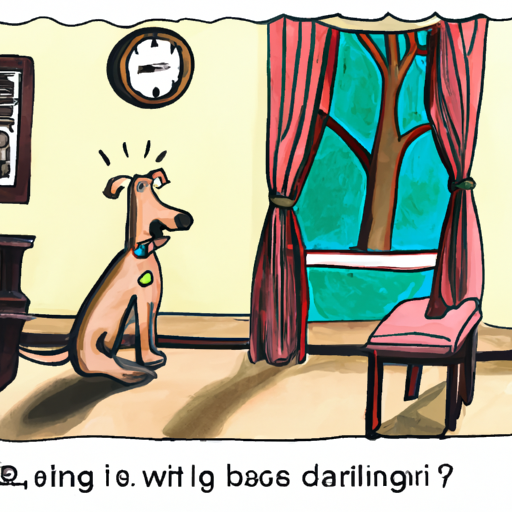Understanding Canine Communication
Dogs, like humans, communicate in many ways. Barking is just one of their many forms of vocal communication. They bark for various reasons. Sometimes it’s to alert their human companions to something they perceive as a threat. At other times, they bark because they’re happy, anxious, bored, or just because they can.
An important aspect of caring for your dog is understanding why they are barking. When you understand the reasons why dogs bark, you can respond appropriately and strengthen your bond with your pet.
Common Reasons Why Dogs Bark
-
Attention Seeking: Dogs are social creatures. They crave attention and interaction. If your dog barks every time you start a conversation or sit down to relax, it’s probably trying to get your attention.
-
Boredom or Loneliness: Dogs that are left alone for long periods may start barking out of boredom or loneliness. They need mental and physical stimulation to keep them happy and healthy.
-
Fear or Anxiety: Some dogs bark when they’re scared or anxious. This could be in response to thunderstorms, fireworks, or even the sight of an unfamiliar person or animal.
-
Alert or Warning: Dogs are protective of their families. If they see or hear something unusual, they may bark to alert you. This could be a car pulling into the driveway, the mailman approaching the door, or a squirrel scampering across the yard.
How to Address Excessive Barking
Understanding why dogs bark is the first step. The next step is figuring out how to address it. Here are some strategies:
- Provide Plenty of Exercise: Regular physical activity can help reduce excessive barking. A tired dog is a good dog.
- Mental Stimulation: Mental stimulation is just as important as physical exercise. Provide toys, puzzles, and opportunities for training.
- Ignore the Barking: If your dog is barking for attention, ignore them until they stop. This teaches them that barking won’t get them what they want.
- Training: If the barking is becoming a problem, you might consider seeking help from a professional dog trainer.
The Role of Breed in Barking
Different breeds have different tendencies when it comes to barking. Some breeds are known to be more vocal than others. For example, Beagles and Terriers tend to bark more than Greyhounds or Basenjis.
| Breed | Tendency to Bark |
|---|---|
| Beagle | High |
| Terrier | High |
| Greyhound | Low |
| Basenji | Low |
Frequently Asked Questions
Q: Why is my dog barking at nothing?
A: Dogs have keen senses. They may be responding to something you can’t see or hear. Alternatively, they could be bored or seeking attention.
Q: How can I stop my dog from barking when I’m not home?
A: Try leaving your dog with plenty of toys and activities to keep them occupied. You might also consider hiring a dog walker or sending your dog to a daycare.
Q: Is it normal for dogs to bark at other dogs?
A: Yes, this is a normal form of communication. However, if your dog’s barking is excessive or aggressive, it may be a sign of a behavioral issue.



